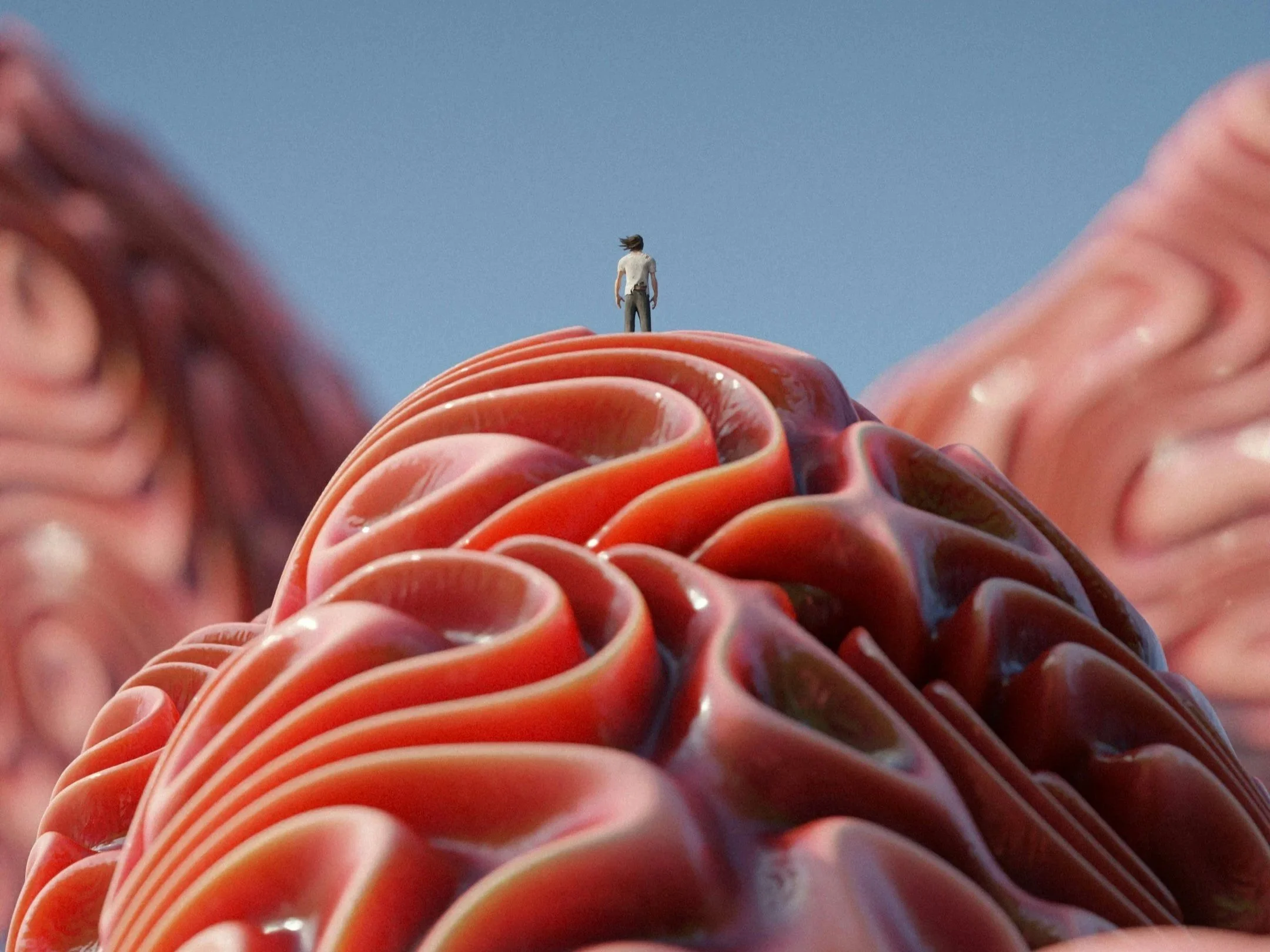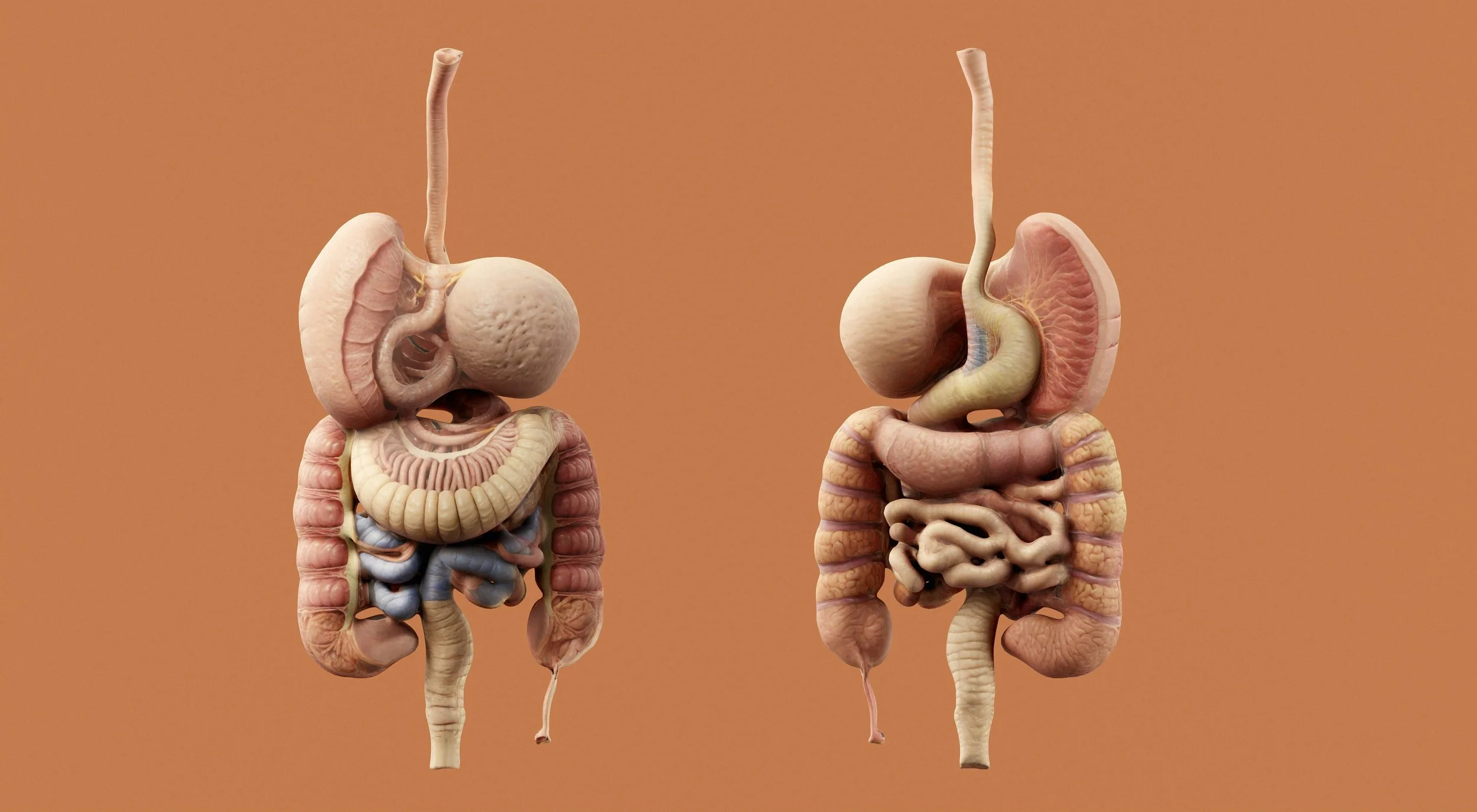The Gut-Brain Connection in Traditional Chinese Medicine
While modern medicine has only formally recognized the gut-brain connection in the past 20–25 years, Traditional Chinese Medicine has understood the deep link between digestion, emotions, and mental clarity for thousands of years.
Today, science is catching up to what TCM has known for millennia: our gut and brain are deeply interconnected. Modern studies on the microbiome, neurotransmitters, and the vagus nerve all echo the same truth that ancient physicians described through Qi and organ systems.
In TCM, there has never been a separation between mind and body—only different expressions of the same energy. The gut is not just where we digest food; it’s where we digest life—our experiences, our emotions, and our thoughts. This complex, holistic healing system allows TCM based acupuncture to effectively treat many digestive health issues, some of it which have been discussed in previous blog posts.
Digestion Through the Lens of TCM
In TCM, the organs most closely tied to digestion are the Spleen and Stomach. Together, they perform what’s known as “transformation and transportation” physiologically, but also relate to the emotions of worry and overthinking.
Their role in transformation is their ability to break down food and drink and convert it into Qi (vital energy) and Blood, the fundamental substances that nourish every aspect of our body and mind. Their role in transportation refers to the distribution of that nourishment throughout the system, supporting all bodily functions—including those that stabilize mood, focus, and emotional resilience. Therefore, when the Spleen and Stomach are functioning well, we feel grounded, focused, and calm - our digestion is smooth, and our mind feels centered.
When they are weak or imbalanced, we may experience bloating, fatigue, poor concentration, and emotional instability. This connection explains why people often feel anxious, foggy, or irritable when their digestion is off, and why supporting digestive function can bring mental clarity and emotional ease.
Emotions, Organs, and Digestion
In TCM, every organ system is associated with specific emotions. This means emotional strain can directly affect organ function—and imbalances in those organs can in turn affect how we feel. For example, excessive worry weakens the Spleen, making it harder to transform food into energy, which can cause bloating, fatigue, and poor concentration. On the other hand, a weak Spleen can create mental fog, worry and anxiety—a feedback loop between gut and mind. The same is true for the Liver: stress or emotional suppression can stagnate Liver Qi, disrupting digestion and causing irritability. When the Liver Qi flows freely, both the digestive and emotional systems move harmoniously.
While the Spleen and Stomach are central to digestion, several other organs ensure that this system runs smoothly. Each plays a distinct yet complementary role—both physically and emotionally. Other organs include:
The Liver:
Regulates the smooth flow of Qi throughout the body, including the digestive tract.
When stress, frustration, or anger cause Liver Qi to stagnate, it disrupts digestion—leading to bloating, alternating constipation and diarrhea, or a feeling of tightness in the chest and abdomen.
Because the Liver stores Blood and regulates emotions, its health directly influences how fluidly we respond to life’s ups and downs.
When the Liver is at ease, digestion flows easily and so do emotions. When it’s tense, we “digest” neither food nor feelings well.
The Small Intestine:
Separates the “clear” from the “turbid,” refining digested material and absorbing what is useful.
Works closely with the Heart to maintain mental clarity and discernment.
When imbalanced, one may experience not only digestive upset but also confusion or difficulty making decisions.
Just as the Small Intestine sorts nutrients, it helps us sort through information and emotions—deciding what to keep and what to let go.
The Large Intestine:
Governs elimination and the release of waste, both physical and emotional.
Partners with the Lung; when Lung Qi is weak or constrained by grief, bowel movements can become sluggish or dry.
Helps maintain proper fluid balance, ensuring that the body’s inner environment stays moist and vital.
Healthy elimination mirrors emotional release—when we let go of what no longer serves us, both digestion and the mind find relief.
Together, these organs reflect a beautifully integrated system that mirrors what modern science calls the gut-brain axis. Each one not only supports physical digestion but also helps process emotions and maintain inner balance.
Digestion Also Impacts Hormones and Mood
In TCM, the Spleen’s role in transforming food into Blood supports regular menstruation, fertility, and emotional steadiness. When digestion is impaired, these systems lose their nourishment, leading to symptoms that span both body and mind. The Liver regulates Qi, which supports regular cycles for women and affects mood changes throughout the cycle. Therefore, changes in digestion are reflective of changes in your hormones.
Signs that digestion may be affecting hormones or mood include:
PMS or mood swings that worsen with bloating or indigestion
Irritability or fatigue after meals
Difficulty concentrating
Anxiety or low mood linked with gut discomfort
By strengthening the Spleen and Stomach, soothing the Liver, and supporting Blood production, TCM works at the root level—balancing digestion, hormones, and emotions simultaneously. This holistic approach highlights a simple truth: when the digestive system thrives, the mind and body find harmony.
Healing the Gut–Mind Connection
The goal of TCM is not to silence symptoms, but to restore harmony among the organ systems that govern both digestion and emotion. To support the gut-brain connection, TCM treatments focus on:
Strengthening the Spleen and Stomach to enhance nutrient absorption and energy production.
Soothing the Liver to regulate Qi flow and reduce emotional tension.
Nourishing Qi and Blood to ground the Shen (spirit) and stabilize mood.
Regulating the Intestines by clearing heat to relieve bloating or constipation.
Acupuncture, herbal medicine, and mindful dietary habits all play key roles in this process, as do meditative practices like Qi Gong and Tai Chi. These therapies work synergistically to bring the nervous system into balance—what modern medicine might describe as “resetting the gut-brain axis.” When digestion becomes centered and calm, the mind naturally follows.



